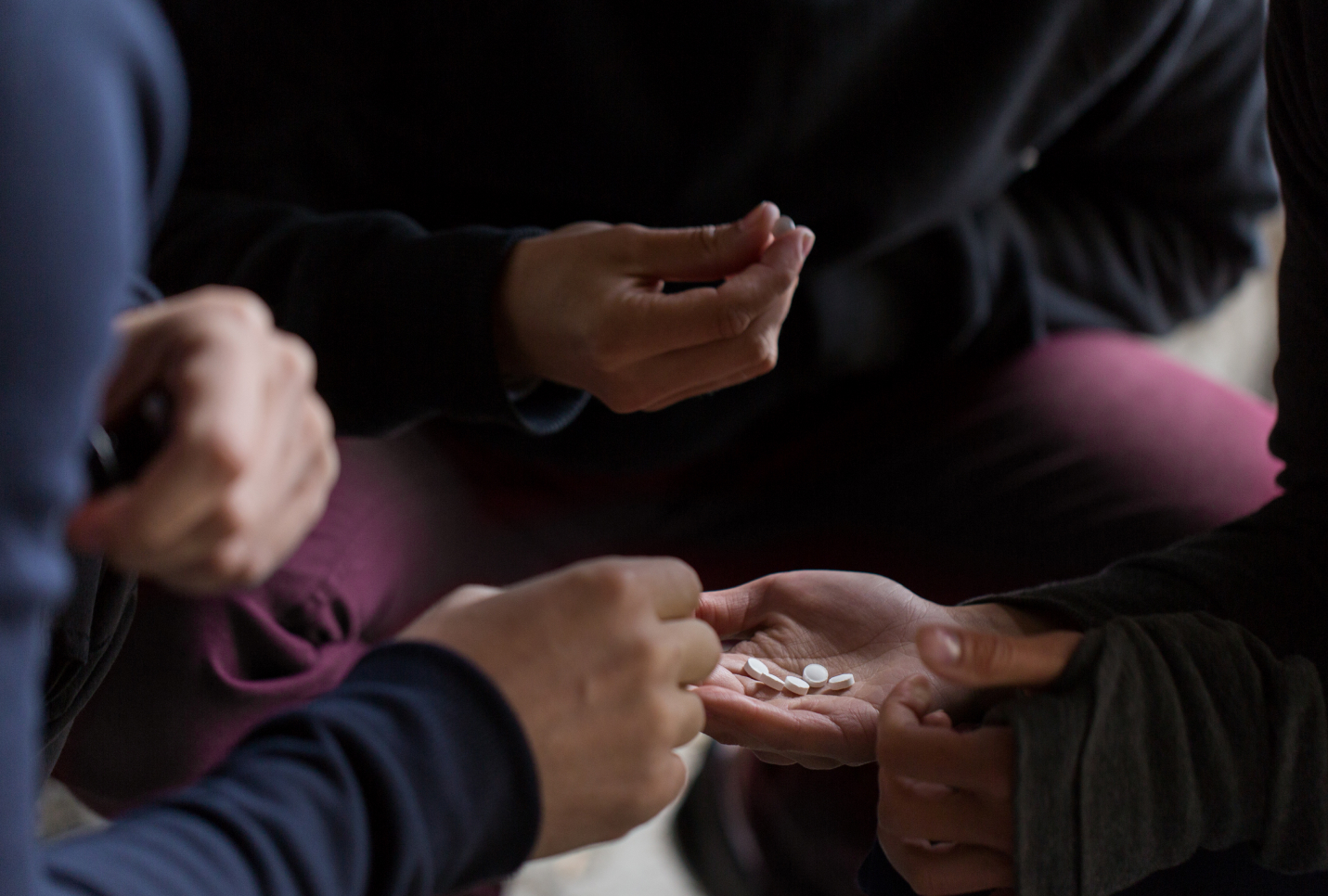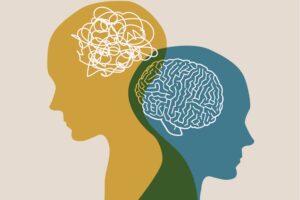Drug use can become a problem long before anyone may even realize it. Everyone may have their own opinions on what is considered reasonable use, but you can’t deny that introducing illicit substances can lead people down a dark path. Some people will use substances recreationally or for experimentation and not walk away with an addiction, but that isn’t always the case for everyone.
There is a theory that certain “mild” substances more commonly used for recreation can give way to more serious substance use disorders. This doesn’t just mean using those drugs more frequently or in a higher quantity, but also using harder drugs that can be more damaging. These drugs are considered “gateway drugs,” and they’re thought to open the path up to drugs like cocaine, heroin, fentanyl, or meth.
All don’t believe in the gateway drug theory, but there are some truths to it that you can’t ignore. To learn more about what are considered to be gateway drugs and what impact they have on a person, keep reading!
The Gateway Drug Theory
The gateway drug theory is that certain substances make it more likely for a person to use harder drugs or develop a substance abuse problem later on in life. Gateway drugs are considered to be more mild drugs and may not seem dangerous right away.
Many people use these drugs in social settings and are comfortable doing so because they are legal. Gateway drugs are very commonly used among adolescents, which furthers the theory that if teens are exposed to these specific drugs for the first time, they may have issues later on in life.
In other words, gateway drugs open the door to harder drugs and are seen as just as dangerous because of this thought process. Additionally, many people that end up with substance abuse issues from these harder drugs like cocaine or meth have said that they’ve used these gateway drugs at least once in their lifetime.
How Does This Theory Work?
This theory’s groundwork comes from two overarching concepts: how drugs alter the brain and how genes and the environment can form addictive behaviors in later life. Many of these gateway drugs release dopamine into the brain, and when used as adolescents, it impacts how your brain will release it in adulthood.
Less dopamine is produced as an adult if, for years, you’ve been supplementing how you get it with drug use. As your body craves more dopamine, it must seek out more intense substances to get the desired feeling.
Some studies on animals show that the animals that were given drugs at an early age developed addictive behaviors as they aged. This drug use in early life then changes the neuropathways in the brain, making you more vulnerable to drug abuse later on. Compared to normal animals who did not get introduced to the drug, the animals that did show signs of different brain activity.
For some people, the gateway drug theory may seem more likely, especially if they come from a background that shows a lot of family history of drug use and mental health issues. If a person’s environment is already unhealthy or gives them easy access to drugs, the likelihood that gateway drugs lead them to harder drugs is much higher.
History of Gateway Drugs
The concept of the gateway drug came about more in the 1970s and 1980s when there was a lot of contention about marijuana use. It helped people to bring attention to the “War on Drugs” and was used somewhat as a tactic to scare people away from using these specific substances.
At first, it was thought that marijuana use would lead a person to heroin use, and then it was found that even more than marijuana, alcohol use was a stepping stone towards substance abuse and harder drugs.
Since the 1980s, there have been countless efforts made by anti-drug groups to promote abstinence from three specific gateway drugs: alcohol, tobacco, and marijuana. So much so that these classes are still being taught across the country today, fighting against peer pressure to use.
These classes show people the harm that can come from using gateway drugs and helping people to understand the consequences.
Common Gateway Drugs
There are three main gateway drugs that come up when talking about the concept. These three habit-forming substances are thought to bridge people between casual, social substance use and drug addiction.
Alcohol, tobacco, and marijuana are all common enough that they are easy to get ahold of, even if you’re underage or in a state where it’s illegal to purchase them. Due to the prevalence of these drugs among adolescents, it’s assumed that these are the three drugs that start other addictions to more dangerous drugs, like opioids or other hard drugs.
Alcohol
Alcohol is one of the most commonly consumed substances, whether an adolescent, young adult, or elderly person. It’s ingrained in our society, which might make one think it can’t be too bad. Unfortunately, alcohol, especially when used from a really young age, can be a gateway drug to other substances. Over 15 million people in the United States claim to have an alcohol addiction.
Many of these people also have a co-occurring drug use disorder. Even if they started off just using alcohol, that could quickly expand to mixing substances and putting themselves in riskier positions.
Though legal when you’re 21, alcohol isn’t always a friend. It can put people in dangerous situations, increases the risk of a variety of different health conditions, and can put stress on a person’s relationships or career.
Tobacco
Tobacco use is still the leading cause of death and disability in the United States, with people of all ages still suffering from the aftermath of it. Many smokers admit to using other drugs, such as alcohol and marijuana, in conjunction with tobacco use. People who have used tobacco in the earlier stages of their life can respond more intensely to illicit drugs later in life.
People that use tobacco and smoke cigarettes are often quick to develop a dependence on smoking. It can also be a social thing, where people feel pressured to use cigarettes and soon find that they need one whenever they’re out with people.
Marijuana
Marijuana has always been considered at the forefront of gateway drugs. As THC has become legal in many places across the country, it’s harder to back this up. However, a majority of people that go on to use harder drugs have admitted to using marijuana at least once in their lifetime.
Some studies show that early use of marijuana by young peoplecan lead to a higher likelihood of drug abuse in adulthood. Additionally, many people that use marijuana in early childhood but don’t stop can develop a dependence on smoking which can cause health-related problems like insomnia and a suppressed appetite.
Controversy About This Theory
The main controversy around the gateway drug theory is that animal models are not always good at generalizing how humans experience things, and correlation doesn’t equal causation. Just because a majority of people who suffer from substance abuse problems have once used marijuana in their life does not mean that it’s that use that caused their future addiction.
All of the studies that have been done are considered to be correlational studies and aren’t always regarded as hard facts. The risk factors don’t always translate.
Many people have used all three of these drugs before and have not experienced substance abuse problems. There is more to substance abuse than just using one of these gateway drugs as an adolescent. It’s important to keep in mind that if you aren’t monitoring your substance use, even with legal substances, there is a potential for harm to come.
SOBA Can Help
If at any point you recognize that your or your loved one’s casual substance use is beginning to morph into something uncontrollable, don’t be afraid to seek out help. Here at SOBA Recovery Centers in San Antonio, Texas, you will receive the help you need to overcome your addiction through a personalized treatment program. Treatment options range from inpatient services to outpatient, with everything from detoxification to sober living being offered in between.
Reach out to a SOBA representative to learn more about our addiction treatment center and what you would get from professional treatment. The time to overcome your addiction is now, so don’t wait any longer!
Sources:
Alcohol As A Gateway Drug: A Study Of Us 12th Graders | NCBI
Cigarettes and Other Tobacco Products DrugFacts | National Institute on Drug Abuse (NIDA)
Cannabis Use And Other Illicit Drug Use: Testing The Cannabis Gateway Hypothesis | NCBI





